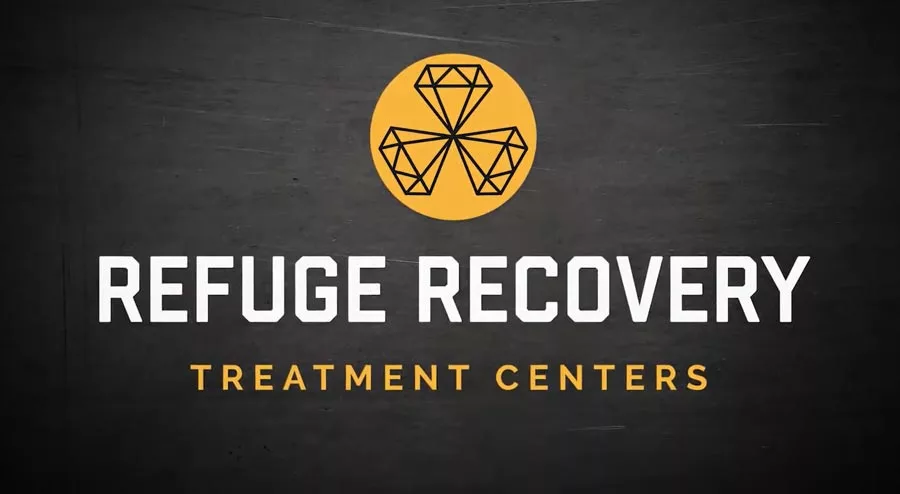Alternatives to the 12-Step Approach to Addiction Recovery
Alcoholics Anonymous® (AA) co-founders Bill Wilson and Dr. Bob Smith, both recovered alcoholics, created the 12 Steps in the 1930s.
Addicts who follow the 12 Steps for addiction recovery recognize they are powerless over their habit. By taking stock of their actions and attitudes, they resolve to own up to their shortcomings and make apologies in an open and forthright manner. Recognizing a force greater than oneself, be it God or someone else, and entrusting one’s recovery to that power is essential.
The 12 Steps are fundamental to AA and comparable programs, such as:
Alcoholics Anonymous®, Gamblers Anonymous®, and Narcotics Anonymous®.
You may already be familiar with these facts and approaches, and know that you would like different forms of support in seeking sobriety. We get it. Keep reading to find out more about the non 12 step recovery program found at Exclusive Hawaii Rehab!
Experience True Healing
Our deeply-caring staff and the surrounding natural beauty offer an unparalleled healing experience.
What Is Non-12-Step Drug or Alcohol Rehab?
Like 12-step rehabilitation programs, the non-12-step treatment encourages abstinence from drugs and alcohol for addiction recovery. However, many secular programs lay less emphasis on relying on a higher power than 12-step programs.
There also tends to be a higher sense of self-empowerment in non-12-step programs, since many of these programs resist identifying addiction as a “disease.”
If you have struggled with AA or NA in the past, a non 12 step rehab and its programs of peer support and self-reliance may be just the approach you need!
A Comparison of 12-Step and Other Treatment Programs

Those who are battling an addiction to drugs or alcohol can choose from a number of effective addiction treatment options. Those people seek assistance for substance abuse through inpatient or outpatient programs, but there are also many who turn to recovery support groups for counsel and encouragement. Support groups for people with alcohol consumption disorder commonly take the style of the 12-step recovery program popularized by AA.
To be sure, this isn’t the only framework out there. Those who may not thrive in a 12-step environment might find alternatives in non-12-step drug treatment and alcohol rehab programs.
How do you select an addiction recovery program that doesn’t adhere to the 12-step model? It can be difficult to navigate the recovery journey without the right guidance, but there are plenty of other programs that exist that lend a helping hand.
In order to achieve recovery, members of AA participate through a 12-step program that encourages them to build connections with other members, find a “sponsor,” and share their experiences in writing and speaking to others. Some people may find it difficult to participate in 12-step rehabilitation programs due to the emphasis placed on spirituality and faith.
There are non-12-step programs, such as drug and alcohol rehabilitation facilities. Rehab programs outside of the 12-step framework may emphasize sobriety, but they are not required to do so. They also tend to give religion and spirituality less weight. Furthermore, participants in such programs frequently report feeling more confident in their own abilities.
Some alternatives to the Twelve Steps have been proposed; what are they?
Alternative to Answers for Drug Abuse Treatment
The lack of widespread recognition that AA, NA, and other 12-step programs have presents a significant barrier to the success of rehabilitation programs that don’t adhere to the 12-step model. Yet, they exist.
There are non-12-step support groups, and to assist increase awareness of alternatives to 12-step support groups for people who are battling with drug and alcohol addiction, here is some information on extra options you have.
It’s worth noting that in nearly every case you’re dealing with a nonprofit organization based solely on volunteer work. Lending a hand to these causes in an organizational role is a great way to maintain sobriety and just generally maintain motivation.
Experience True Healing
Our deeply-caring staff and the surrounding natural beauty offer an unparalleled healing experience.
The Need for a Non 12 Step Recovery Program Approach
Why are alternative substance abuse treatment programs so important? For one, the 12-step program’s foundation is firmly based on a profoundly spiritual philosophy – the belief in a higher power for battling alcohol use disorder and managing sustained sobriety. Some people’s wants and ways of living don’t align with this. Another reason is that some people prefer a more flexible approach than the 12 Steps for their treatment programs.
The majority of clients at Exclusive Hawaii Rehab are looking for non-12-step programs. Some people have previously attempted the 12 Steps but found it wasn’t the appropriate fit for them. Starting from scratch is an option for some people. We recognize that not everyone responds the same way to addiction therapy, which is why we provide a variety of approaches. Clients can follow the 12-step program, and find that self-management can be extremely difficult.
Alternative #1: SMART Recovery®

SMART Recovery® is for persons with alcohol or drug addiction as well as people with behavioral issues, such as gambling. The objective of SMART Recovery® is to help you make life adjustments that keep you sober.
SMART Recovery is a four-point recovery method. The four points are:
- Building and retaining motivation
- Containing Compulsive Behaviors
- Keeping one’s psyche, emotions, and actions in check
- Maintaining a healthy and fulfilling way of life
SMART Recovery sessions, like 12-step groups, may be found every day in different parts of the world. Either in-person or virtual meetings are available for your participation.
Alternative #2: Refuge Recovery
Twelve-step alternatives often include a program called Refuge Recovery. Refuge Recovery is a Buddhist-inspired program and a growing non-12 step philosophy. It’s an organized method for relieving the misery of addiction’s withdrawal symptoms. It could be considered a form of secular recovery.

The curriculum is based on a set of fundamental principles. One of these is having faith that help is on the way to you. Refuge Recovery’s basic principles are as follows:
- Compassion
- Forgiveness
- There is evidence-based behavioral therapy for substance abuse as an alternative to meditation.
- Addiction treatment based on science is beneficial
There are also follow-up forms of therapy you can participate in with your primary care counselor.
Counseling Methods at a Non 12 Step Recovery Program
You don’t always have to choose from secular organizations for your post-addiction treatment. Even other options like SMART Recovery and similar programs are effective – but some people choose to spend their post-treatment time with a normal counselor. This seems to be effective enough for them as an alternative to group meetings and secular organizations. Technically this doesn’t fall under the category of self-management, because a form of support still exists outside of the individual.
Addiction treatment plans frequently include cognitive-behavioral therapy (CBT). Clients often adopt unhelpful perspectives and practices. These routines aid in the maintenance of their addictions and make recovery more challenging. Through CBT, you may examine your habits and replace unhealthy ones with more positive ones.

Many people with addiction issues feel helpless and hopeless, however this is a common misconception that may be dispelled via motivational interviewing. Programs of treatment based on motivational interviewing might help you see that you can make a difference. You learn to actively pursue and commit to positive changes as part of this therapy.
Interpersonal treatment – many people who struggle with addiction have negative attitudes, assumptions, and routines that show up in their interpersonal interactions. New perspectives and behaviors are taught in therapy to aid in the repair and enhancement of interpersonal bonds.
In this form of treatment, professionals will look at all the ways in which your lifestyle choices and environment may be putting you at risk for developing an addiction. Personal, interpersonal, and social influences, such as those at home, at school, in the neighborhood and among friends and acquaintances, may play a role.
Experience True Healing
Our deeply-caring staff and the surrounding natural beauty offer an unparalleled healing experience.
Medication-Based Post-Treatment Options
Many addicts benefit from the use of medication throughout their time in rehabilitation centers. For example, medications like naltrexone and acamprosate can be used to lessen the likelihood of recurrence. Combining medication with psychotherapy is the norm. With these programs, you almost always meet with a counselor who is certified in. recovery training. These take place outside of treatment centers, but similar programs are available at inpatient rehabs.
- The medicine naltrexone (Vivitrol) helps lessen the desire to use alcohol or opioids and lessens the likelihood of relapse. This aid can also assist an alcoholic in cutting back on their drinking.
- Acamprosate (Campral) is a medication that can assist an alcoholic cut down on their drinking or perhaps stopping drinking altogether by reducing their cravings for alcohol.
Women for Sobriety
Women for Sobriety (WFS) is a non-profit organization that was created in 1975 as the first self-help program specifically for women with alcohol addiction. This is a popular alternative to SMART Recovery and Lifering Secular Recovery.
The Women for Sobriety New Life Program is based on 13 acceptance statements that encourage women to think and act in a more constructive manner, take greater personal responsibility, and develop their emotional well-being as they work toward a sober lifestyle.
According to the WFS concept, a person’s actions are a direct outcome of their ideas, and negative patterns of thinking may be altered by replacing them with more positive ones.
WFS promotes women to develop a healthy self-image by learning to love and respect themselves. This may lead to greater self-control and even spiritual development.
The Secular Approach of Many AA Alternatives

In order to successfully complete the program, women are urged to actively adopt the 13 affirmations every day. Members are encouraged to give some thought to each phrase, how it may be used, and what good it might bring about in their lives both in the morning and before going to sleep each day.
WFS also incorporates meditation, music therapy, yoga classes, good dietary techniques, and other holistic treatment modalities to enhance recovery as well.
Meetings are led by a moderator in recovery, and groups are generally comprised of 6 to 10 women.
The weekly meetings continue for approximately an hour and a half, and at the beginning of each new meeting, members are handed informational materials.
At each meeting, ladies identify themselves and discuss a good deed or experience and link it back to the 13 acceptance statements.
Membership is kept discreet, so ladies may share in private and with security. The literature on WFS is the main focus of the discussions. Attendees clasp hands at the end of each meeting and recite the WFS motto, which emphasizes individual responsibility, collective success, and the power of mutual aid.
S.O.S. or Secular Organizations for Sobriety
S.O.S. is a non-profit, secular organization that provides assistance to those recovering from substance abuse. They have no affiliations with any other groups. Members just have to commit to not using drugs or alcohol. Membership is private and without cost, while donations are appreciated because the groups are prohibited from accepting outside support.
Secular Organizations for Sobriety is proud to stand out from the 12-step model by having its own program with neither religious or secular roots. As a program that is open to new information and different perspectives on addiction, S.O.S. is always adapting to meet the needs of its users. People are urged to think logically and accept responsibility for their actions.
What Are the Best AA Alternatives?

There are methods other than the 12-step program that can help you manage or cope with your substance misuse if you are seeking the best non-12-step rehab solutions. You can also try these self-motivated methods independently or with a group:
- Meditation and other forms of mindful awareness
- CrossFit courses
- Meditation and breathing exercises
- Nutritional programming
- Native American spiritual courses
- Art therapy and music therapy
- Yoga courses
- Adventure therapy
- Personal development education
- Experiential treatment
Experience True Healing
Our deeply-caring staff and the surrounding natural beauty offer an unparalleled healing experience.
Find the Benefits of Our Non 12 Step Recovery Program Now
At Exclusive Hawaii Rehab, we offer many of the activities mentioned above as part of our traditional treatment program. Everything within our holistic treatment program is meant to contribute towards a balanced life for our clients.
For more information on how you can become successful using non-12-Step rehab programs, contact our Intake team today!